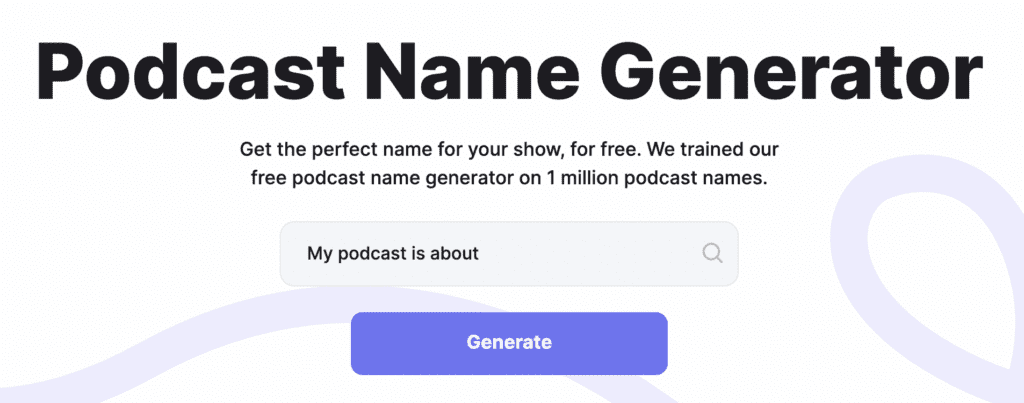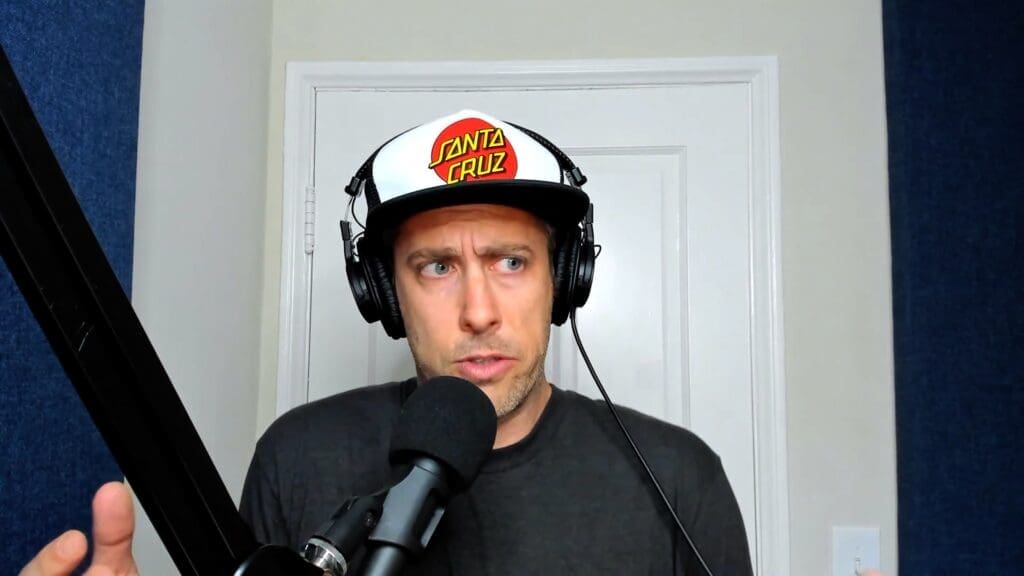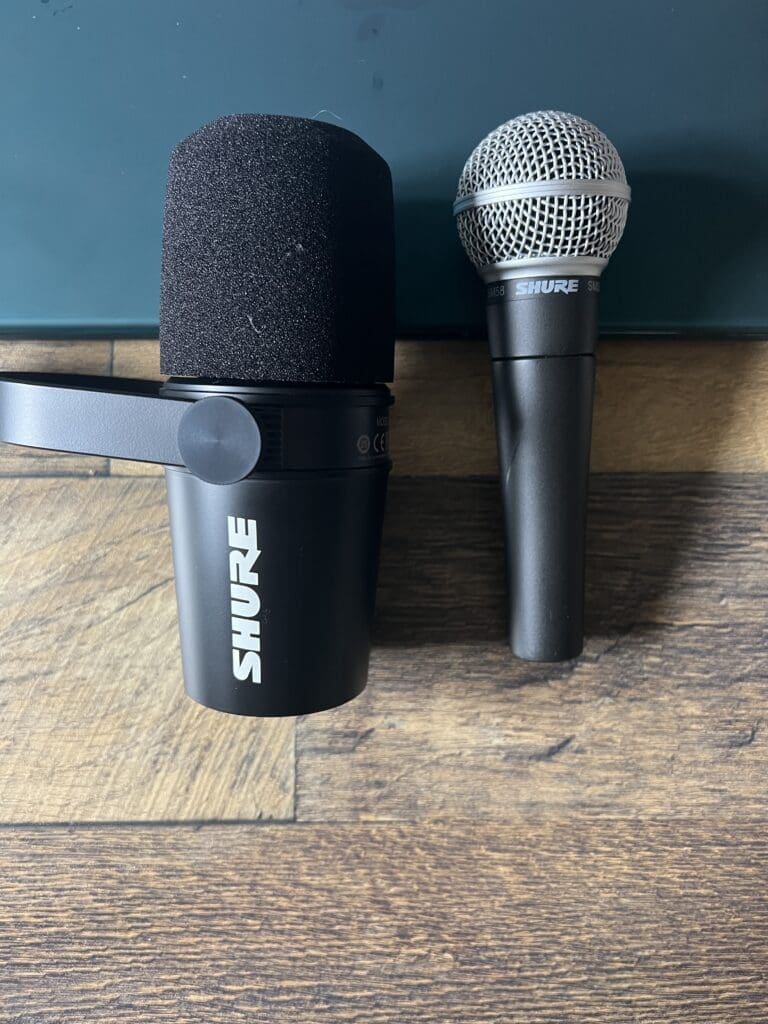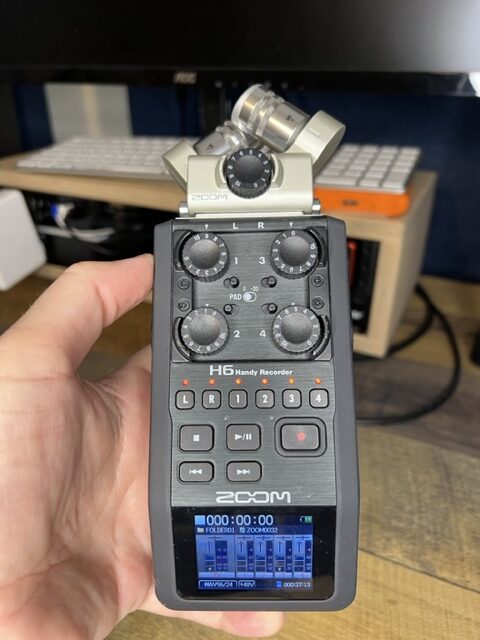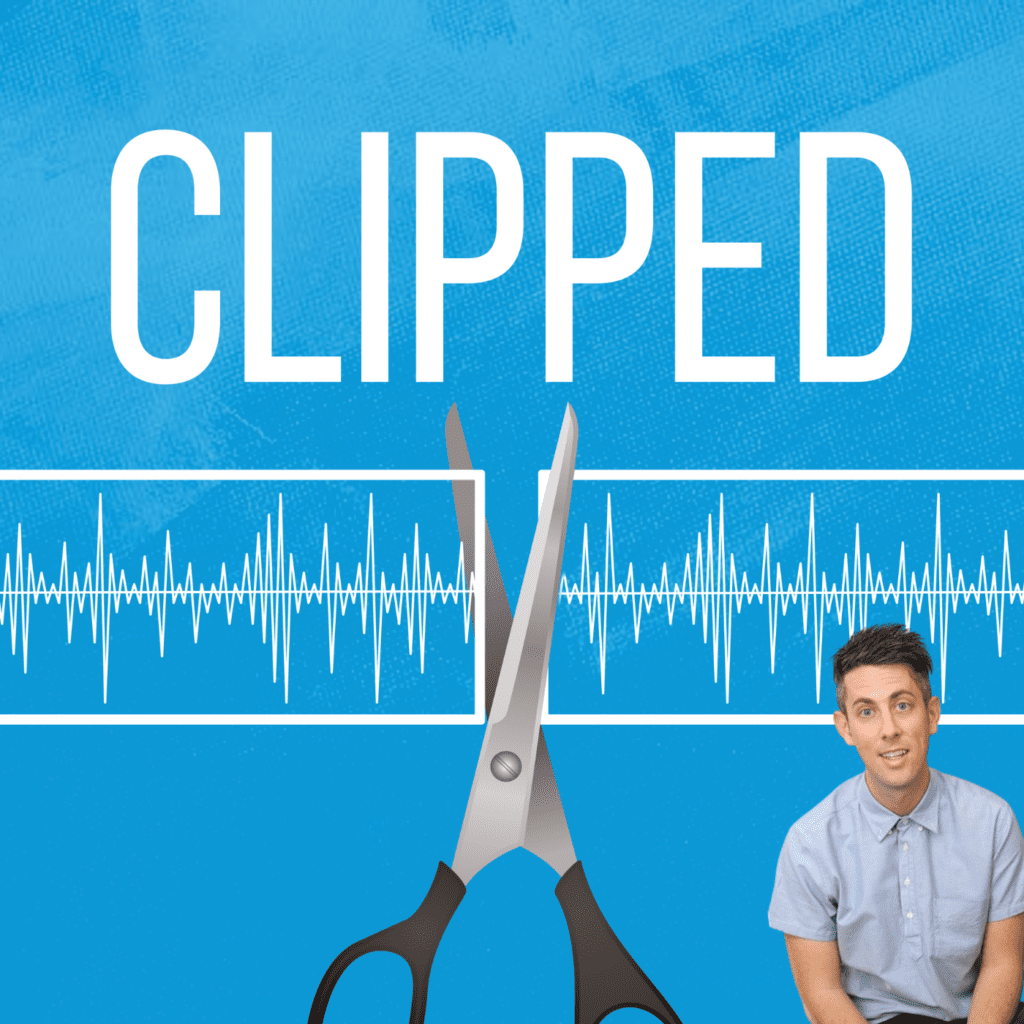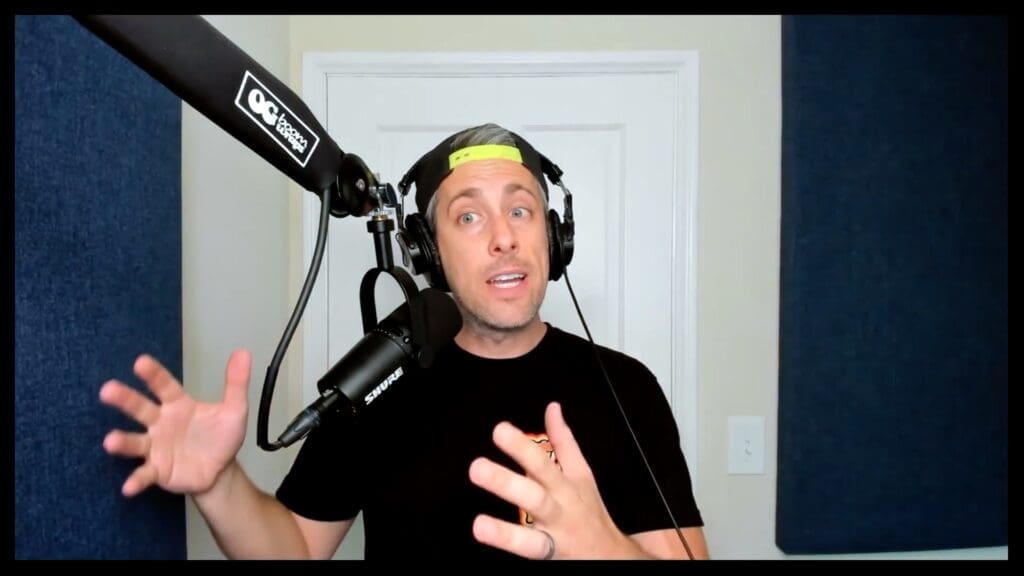
How To Start A Podcast: Pre-Production To Launch
Venturing into the rapidly evolving digital world of 2023, one finds an engaging, diverse, and ever-growing industry: podcasting. With over 150 million episodes and counting, this booming digital space presents many opportunities for those wondering how to start a podcast.
This industry, rooted in 2004, has surpassed being a mere trend and has effectively become a part of our modern lifestyle.
The allure of starting a podcast lies in the power to connect and share your unique stories, insights, or expertise. It provides a platform to build meaningful relationships and cultivate a brand that resonates with individuals across the globe.
A distinctive quality of podcasting is its integration into the daily routine of your listeners. Be it during a commute, a workout session, or a day at work, your voice could subtly permeate their lives, creating an impact without requiring their full attention.
This unique trait distinguishes podcasting from video content, offering listeners the freedom to engage on their own terms and at their own pace.
Embarking on the journey to start a podcast might seem daunting initially. However, rest assured that we are here to assist, providing a comprehensive roadmap on how to start a podcast.
This guide is structured into four main sections. We like to call them The Four Pillars of Podcasting. They are pre-production, production, post-production, and launch. Mastering these crucial aspects will empower you to create a personalized podcast that your audience eagerly awaits and deeply values.
One last thing before we get started. We’ve packaged a lot of the below information into our podcast, Clipped. Clipped delivers top-notch podcast production tips, valuable resources, industry insights, and education to make every podcaster’s life easier. With Clipped, our mission is to help you start, grow, and monetize your podcast.
Alrighty, let’s get into how to start a podcast.
Pre-Production
Your “Why”
It’s imperative to figure out your “Why” before you line up your first guest or record your first episode. This will shape your podcast’s direction and give you a reason for moving forward when things get complicated.
Wanting to make money or become famous isn’t a good enough reason to start a podcast. While it’s becoming more accessible and easier to monetize content, few podcasters can make money from their show, and an even smaller number can make a living solely from sitting behind a microphone.
We’re not dropping that bomb to discourage you; we’re mentioning it to ensure you know you’ve got a long journey ahead.
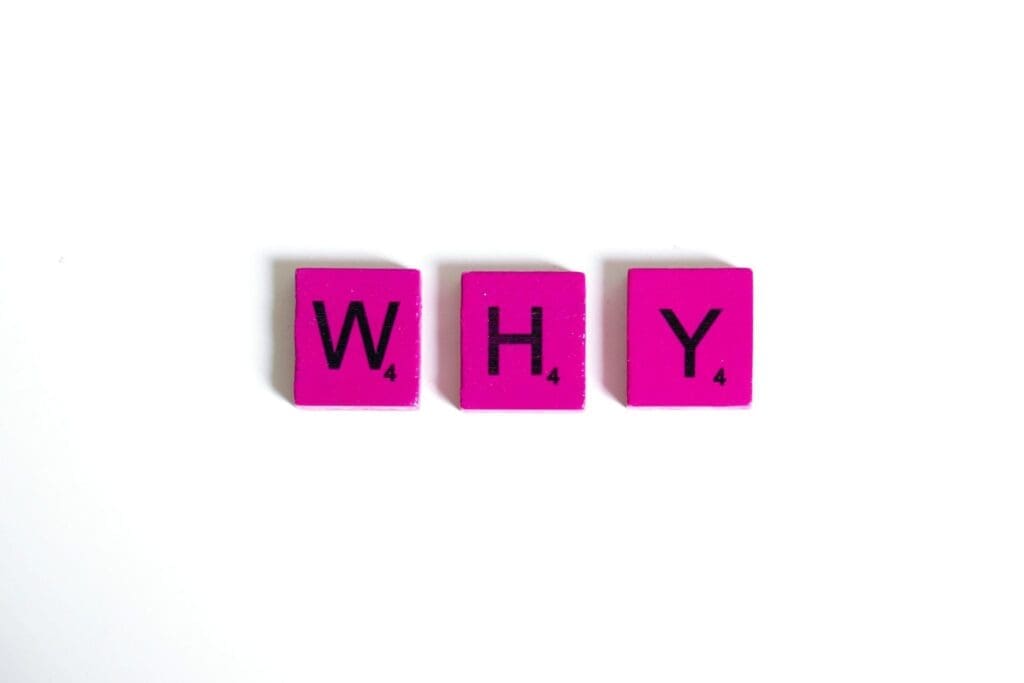
Routinely producing a podcast takes A LOT of work. If you think it will be a park walk, you should stop now.
Our Top Five Reasons To Start a Podcast
- Inform or Educate: You should provide your audience with new information or teach them about a particular topic.
- Entertain: This is often the purpose behind podcasts related to sports, movies, music, games, or pop culture.
- Persuade or Influence: You might want to persuade your audience to adopt a certain viewpoint or influence them to take a particular action.
- Inspire: Your podcast might aim to inspire your audience, encouraging them to think differently or take action in their own lives. This is usually seen in self-development podcasts.
- Build Relationships: Sometimes, the purpose of starting a podcast is to build or strengthen relationships with an audience or other professionals.
Determining your purpose is crucial because it guides all aspects of content creation, from the tone and style of your writing to the ways you engage with your audience. It helps ensure that your content is compelling and achieves the desired impact.
Picking Your Podcast Niche
No one wants to hear you ramble about something you’re not educated in. Folks prefer knowledgeable insights from authority figures who can answer their queries and add value.
They’re after specifics, so if you’re passionate about filmmaking but don’t have a strong profile in that area, you’ll struggle to compete.
Your task is discovering your unique podcast niche or presenting a familiar topic from a fresh perspective.
Be targeted yet original.
Suppose you’re thinking of launching a financial podcast; with so many out there, standing out might be challenging. Combining your expertise with your hobby or passion could be your ticket.
If you’re a finance whizz with love for sports, consider a podcast on the business side of sports, dissecting athletes’ salaries, sponsorships, and brand deals.
Aiming to podcast about Jazz? That’s too general. Choose a specific Jazz style. If Bebop’s your jam, make it your theme and dive deep. You may not charm Swing-loving Jazz fans, but Bebop aficionados worldwide will adore you.
Thinking of starting a filmmaking podcast? That’s broad!
Try getting specific, like focusing on Hitchcock’s horror masterpieces. That’s a solid way to kick things off, and you’ll set yourself up for success.
Nobody needs another run-of-the-mill filmmaking podcast. OUF
Niching down is often the secret to podcast success. Being a big fish in a small pond, focusing on a specific area helps you build authority and expertise.
Remember, you don’t have to please everyone.
Avoid aiming for a massive, generalized audience. Instead, hone in on a target audience to nurture a dedicated and loyal following. Listeners will appreciate your unique insights, boosting listener retention and engagement.
For a more detailed exploration of starting a niche podcast, check out our article, Mastering Your Podcast Niche: Unlocking Growth, Authority, and Monetization.
Podcasting Goals
As we’ve established, your podcasting purpose is the overarching “why” behind your podcast. It’s your fundamental motivation or the core reason you’re putting your voice out there.
In contrast, your podcasting goals are the specific, measurable outcomes you aim to achieve within the framework of that purpose, like reaching a certain number of listeners or generating a particular amount of revenue.
They provide direction, help gauge progress, and aid in making informed decisions.
Common Podcasting Goals:
- Audience Growth: Metrics like downloads, subscriptions, and social media followers are usually tracked to measure this.
- Engagement: Podcasters often aim to increase listener interaction via reviews, comments, emails, or social media activity. This helps foster a sense of community.
- Monetization: Podcasting can be a profitable venture. Many podcasters set goals to generate revenue from their podcast.
- Networking: For some, a goal might be to interview industry leaders or influential individuals, leading to potential collaborations or partnerships.
- Skill Development: Some podcasters may start a podcast to learn new skills, like audio editing, marketing, or public speaking. Podcasting can serve as a practical training ground.
- Personal Fulfillment: Many podcasters are driven by a love for their topic or the joy of creating. For them, goals might be centered around a passion project.
- Creating Impact: Many podcasters aim to inspire change, whether it’s raising awareness about a cause, educating listeners on a specific topic, or sparking a dialogue about important issues.
It’s crucial to have clear and achievable goals for your podcast.

Picking An Episode Format
Choosing a consistent episode format is as important as sticking to your podcast niche. If you fluctuate from ranting one week to interviewing an expert the next or switching to a friendly discussion the following, your audience may need clarification.
Sure, it’s okay to occasionally switch things up with a new segment or exciting guest, but mainly, stick to your format, especially when starting.
Your listeners crave consistency.
If you want to include a personal story or host a special episode, try linking it to your show’s theme.
Now, here are the six main show formats to consider:
- Interview Shows: A common format where you or your co-host(s) interview influencers in your podcast’s field.
- Roundtable/Conversational: A simple format where friends discuss a topic. Like, chatting about a Super Bowl victory. Witty banter is a must.
- Instructional: These podcasts teach a specific skill, like stock trading, video editing, or cooking. They can even mimic online courses, diving deeper as they progress.
- Solo-casts: The host does the show alone, sharing advice, personal stories, lessons, or humor. It’s an excellent format for a deep, emotional connection with your audience.
- Narrative/Storytelling: These podcasts share captivating real-world stories, like history or true crime. They often include interviews and require good writing and journalism skills.
- Scripted: Think of these as audio TV shows. You write the story, hire voice actors, and bring your story to life. Some scripted podcasts have even become TV shows!
Podcast Names
Your podcast name is your spotlight on the web, popping up in marketing materials, podcast directories, and mentions. It’s how listeners find and share your show, so put serious thought into it.
Changing your podcast name after launching a bunch of episodes is a real headache, and it may need to be clarified for new listeners.
Take your time naming your podcast and envision the brand you want to create. We’ll discuss a few podcast name types soon, but first, a crucial tip: don’t choose a name that’s already taken.
With so many podcasts out there, do some homework. Check your favorite podcast directories for the name you have in mind. If no current shows have your name, then jackpot — you’re good to go.
You might be surprised how many podcasts share or nearly share your ideal name. If it’s taken, brainstorm fresh ideas and try again.
If you’re stumped, try a podcast name generator.
Don’t hurry your show into production without doing some research. Be savvy, proactive, and don’t make me say, “I told you so!” Now, let’s explore some name options:
- Catchy/Creative Names: These names use humor or puns to grab listeners and set the show’s tone. Ideal for comedy or media podcasts. For example, About Last Night and Punch Drunk Sports.
- Descriptive Names: These names cut to the chase, telling you exactly what the show covers. Aim for descriptive but not dull. For instance, The Blogging Millionaire and The School of Podcasting.
- Real Names: Some podcasts just use the host’s name. This works well if you’re already known by a brand or professional identity. Like, The Joe Rogan Show and The Dr. Drew Show.
There aren’t strict rules for podcast naming, but consider the names of other podcasts in your category. You don’t want to attract the wrong audience with a misaligned name.
My advice? Consider your target audience and niche, then pick a name that makes sense for your brand. Also, only use your real name if you already have a following and influence in your industry.
How To Plan Podcast Episodes
When starting a podcast, your show prep will likely depend on the type of episode you’re creating.
For example, if you’re recording a solocast, you’ll likely script things out in more detail, whereas if you’re conducting an interview, you may build your questions off bullet points and be ready to pivot if the conversation starts to shift.
If it’s a roundtable discussion, you may hardly prep.
As you gain more experience, you’ll develop your style and determine what works best for you and your podcast.
That being said, here are some best practices for planning your episodes:
Guest Research
You should thoroughly research their background, interests, and expertise. This will help you ask insightful questions and engage in a meaningful conversation.
However, you should also leave room for spontaneity and natural conversation.
Here are some great places to do guest research:
And, of course, the guest’s website, podcast, and social media channels.
Scheduling
Schedule the interview well in advance and stick to the agreed time. Give yourself and your guest enough time to prepare and get comfortable before you start recording.
Also, allow enough time on the backend of the interview to thank them, get any input or information, and let them know how much you appreciated their time to participate.
Make sure you send a calendar invite, and if it’s remote, include a link to the online recording platform.
For remote interviews, I recommend Riverside.fm. Use promo code CLIPPED at checkout to save money for 20% off any individual plan.
Interview Questions
Prepare a list of questions or talking points based on your research about the guest. Your questions should be pertinent to the subject material and help guide the conversation in your desired direction.
However, you should also leave some room for spontaneity and honest conversation. This will make the interview feel more natural and less like a strict Q&A session.
Scripting
If you’re recording a solo episode, having some sort of script is key. Your script can be read verbatim or serve as a guide, rather than a rigid framework.
It should include an introduction, a list of main points, transitions, and a conclusion.
Here’s a quick tip for scripting an episode, build a template. That way, if there are specific calls to action or things you always say in the intro/outro, you don’t have to re-write them for every episode.
Scripting doesn’t have to be fancy; use a Google Doc and update it every time you record.
Mastering your podcast episode planning boils down to a delicate balance of thorough preparation and maintaining the flow of natural conversation.
Explore different methods to discover what suits your style and enhances your audience’s experience.
Remember, your podcast planning will evolve and improve with practice and patience.
Pre-Production Wrap Up
So, here’s the deal: pre-production might not be the sexiest part of podcasting, but the secret sauce makes everything else flow. The more you nail this stage, the smoother the rest of your podcasting journey will be.
Think of it as the sturdy foundation that holds up the rest of your podcasting house. It’s all about that prep work!
Podcast Production
How To Record a Podcast
Once you’ve figured out your “why,” chosen your niche, named your podcast, and decided on a format, it’s time to start recording. This is where the rubber meets the road.
Navigating the recording process can often present a significant challenge when learning how to start a podcast.
First, you have to invest in some good podcast equipment. At The Podcast Haven, we’re not fans of telling new podcasters, “Just record into your smartphone!” We believe in capturing quality audio.
The good news? You don’t have to break the bank to get a good podcast starter kit. Once you have a microphone and headphones, you’ll need recording software or a digital recorder.
Podcast Recording Software
Podcast recording software is sometimes referred to as DAW – Digital Audio Workstation. Digital Audio Workstations (DAWs) such as GarageBand and Audacity offer a range of features that allow podcasters to record, edit, and mix their audio files.
With its user-friendly interface, GarageBand is ideal for beginners and comes free with purchasing a Mac.
On the other hand, Audacity is free and known for its robust editing and post-production capabilities. Audacity can be used on a Mac or Windows computer.
Suppose you are computer savvy and plan to do most of your podcast recording at home. Recording straight into your computer may be easiest via one of these software options.
Check out our article on the best podcast recording software for more information about podcast recording software options.
Additionally, check out Riverside.fm. – We’re Riverside Affiliates. For 20% off of a Riverside plan, use promo code CLIPPED at checkout.
Riverside is a platform designed for recording high-quality video and audio conversations, often used for podcasting, interviews, and other forms of digital media production. It functions like Zoom but was designed specifically for podcasters.
With Riverside, you can record full-fidelity audio and up to 4K video files all from your computer.
The Podcast Haven is a vast supporter of Riverside and use the product almost daily! We had to give them a shoutout.
Nonetheless, these are all great places to start recording a podcast.
Recording a Podcast with a Digital Recorder
On the other hand, if you’re more of a hands-on person, you might prefer recording a podcast into a digital recorder. Something is to be said for manually turning knobs and pushing buttons to dial in your sound.
Digital recorders typically have 1-4 microphone inputs. Perfect if you’re recording a multi-person podcast.
Unlike recording software, which you record into the computer, digital recorders track your files onto memory cards.
Devices like the Zoom H6 and the Rodecaster Pro provide podcasters with portable and versatile recording solutions.
The Zoom H6 is known for its preamps and interchangeable microphone system, making it a flexible choice for on-the-go recording. It also has 4 mic inputs and is to travel with.
Toss it in your bag, and you have a mobile recording studio at your fingertips.
The Rodecaster Pro, meanwhile, is an all-in-one podcast production studio that combines a mixer, SFX player, phone tap for call-ins, and multitrack recording into one device, making it a comprehensive solution for podcasters.
Podcast Production Wrap Up
When figuring out how to start a podcast, remember that the quality of your recording can significantly impact your listeners’ experience.
With the right equipment and software, you’re well on your way to starting a podcast that resonates with your audience and stands out in the crowded podcasting landscape.
Podcast Post-Production
After you’ve recorded your podcast, you’ll need to edit it. This can take many shapes and forms, but for the sake of this episode, we’re keeping it basic.
To learn more about editing and mixing professionally, check out our article on advanced podcast editing tips.
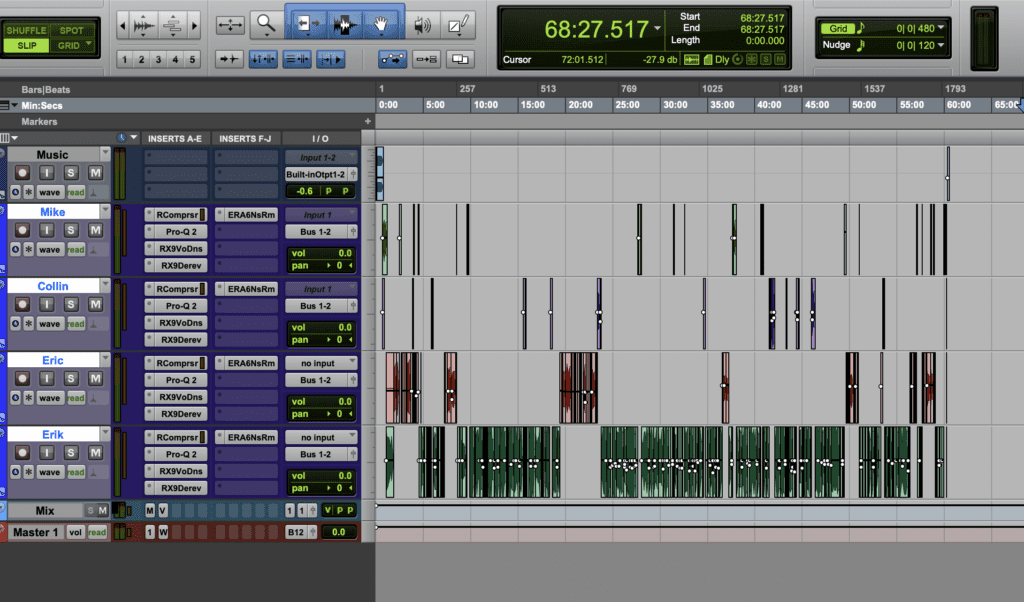
Editing a Podcast with Pro Tools
How To Edit a Podcast
Editing is a crucial part of the podcast production process. It’s where you remove mistakes, add music and sound effects, and clean up dialogue to make your episodes shine.
Suppose you’re new to podcast editing and need more time to be ready to invest in learning a digital audio workstation (DAW); fear not. In that case, many online tools can help you get started. These tools won’t replace a DAW but are a good starting point.
The audio tools below can automate basic editing and mixing tasks such as:
- Leveling: Balancing the audio levels in your podcast.
- Background Noise Reduction: Minimizing ambient noises like buzzing, hissing, and humming.
- Echo Cancellation: Reducing feedback loop when podcasters aren’t wearing headphones.
- Audio Quality Enhancement: Using EQ, Compression, and Limiters to improve sound quality.
Descript
Descript is a powerful audio and video editor that functions like a Word document. It offers features like live editing, wordbar, and overdub, which creates a text-to-speech model of your voice. Edit audio by editing text. Click on our affiliate link above to try Descript for free.
Riverside.fm
With Riverside, you can also edit your podcast by editing its transcript.
Alitu
Alitu is designed to make your podcast sound professionally recorded, edited, and mixed. It can edit audio in real-time, reduce background noise, level out dialogue, and auto-publish episodes to your podcast host.
Auphonic
Auphonic is an “audio autopilot” for podcasts. It uses AI and signal processing techniques to automatically level out audio, reduce noise, and process multiple tracks.
The Art of Podcast Editing
Podcast editing is a transformative process that breathes life into your content, making it engaging and immersive for your listeners. It’ll probably seem daunting when you initially start a podcast, but, the plethora of user-friendly tools are available to help you navigate this process.
From balancing audio levels and reducing background noise to enhancing overall sound quality, these tools are designed to make your podcast sound as professional as possible.
As you venture into the world of podcasting, remember that editing is more than just a technical process – it’s a creative one that adds depth and dimension to your storytelling.
With time and practice, you’ll master the art of podcast editing, ensuring each episode resonates with your audience and leaves them eagerly awaiting the next.
Post-Production Wrap Up
Post-production is crucial for a podcast as it enhances the overall audio quality, ensuring a smooth and enjoyable listening experience for your audience.
Additionally, post-production is the time to add music to your podcast, as well as learn about how to license music for a podcast. Music further enriches the podcast’s content and makes it more engaging for listeners.
Launching a Podcast
Once you’ve finalized a few episodes, it’s time to get your podcast out into the world. But before you do, there are a few things to take care of.
Podcast Cover Art
First, you’re going to need to create great cover art. For cooking up something eye-catching, we recommend using Canva.
Canva is a user-friendly graphic design tool offering a variety of fonts, images, and templates for creating visual content. It’s famous for its drag-and-drop interface and both free and premium options.
Podcasters often use Canva to design their podcast cover art due to its ease of use and vast library of resources.
They can choose from various templates or create custom designs, making their podcast visually appealing and recognizable across various podcast platforms.
Is Podcast Cover Art Important?
Yes. It’s often the first thing potential listeners see when they come across your podcast on a listening platform. Well-designed cover art can grab their attention, make a strong first impression, and convey the theme or tone of your podcast.
It’s a key part of your podcast branding and an important part of starting a podcast.
Just like a book cover, your podcast cover art can significantly influence whether someone decides to give your podcast a listen or not.
Podcast Cover Art Best Practices
- Your artwork needs to be square and between 1500×1500 – 3000×3000 pixels.
- Include the name of your podcast
- Include the logo of your podcast
- Include a photo of yourself in the artwork. Listeners want to know what you look like!
Podcast Show Notes
Next, you’ll need to learn how to write podcast show notes are a great way to grow your relationship with your audience. If you didn’t know, podcast show notes appear in podcast listening apps beside your episode.
They are a written description of the content covered in an episode, serving as a hub for listeners to learn more about you, your guests, and the resources discussed.
Each episode needs compelling show notes.
Show notes reinforce an episode’s message by complementing audio content with imagery and articles, providing an in-depth look at an episode topic that can be consumed audibly and visually.
Always include links to websites, social media accounts, promotions, books, and more, in your show notes.
Boost SEO With Well Written Show Notes
Show notes are great for SEO. Search engines can find your content and direct potential listeners to your website and podcast by including keywords related to your episode’s topic.
Remember, search engines can find text but could be better at indexing audio, making show notes a valuable marketing tool.
How To Create a Show Notes Template
To write your show notes, create a template to ensure consistency. This template should include the guest’s name and profession, the episode title, a brief episode summary, key talking points, top takeaways, memorable quotes, and links to relevant resources.
End with a call to action, such as telling listeners to sign up for your email list.
Need more time to create your own template? We’ve got your back. Here’s your free Podcast Haven – Show Note Template
More Than Audio
Remember, a competitive podcast requires more than just audio. Show notes help demonstrate your expertise, help foster community, and increase your podcast’s reach through improved SEO.
They are a crucial part of learning how to start a podcast. You show notes will help build your podcast’s ecosystem and are an important part of your marketing strategy.
How To Get Your Podcast On Listening Platforms
You need to sign up with a podcast hosting platform to get your podcast onto all the major podcast directories.
A podcast host isn’t to be confused with a “podcast host,” as in someone who talks on a mic and hosts a show.
Podcast hosts play a vital role in distributing your podcast across platforms such as Apple Podcasts, Spotify, and Stitcher. They act as your distribution hub, and send your episodes to all the listening platforms.
The process involves using an RSS feed, an automated system that delivers your podcast episodes to selected directories. Once published, your episodes become instantly available on these platforms.
Your podcast host also provides analytics, which is essential for understanding your show’s performance and making growth decisions.
Our Favorite Podcast Hosting Platforms
Castos
Castos offers unlimited episode publishing, irrespective of the plan. Provides transcription services and analytics to boost engagement. Also, has a YouTube republishing feature to expand its reach.
Podbean
Ranging from beginners to professionals, Podbean offers a live stream feature and provides basic analytics with their free plan, expanding with higher-end options.
Omny Studio
Omny Studio is an advanced hosting site featuring an in-built audio capture system and editing feature. Primarily targeting enterprise-level podcasters.
Libsyn
Known as the original podcast host, Libsyn provides comprehensive statistics to understand your podcast’s performance, directory listings, app listings, and more. At the time of writing this Clipped, one of our Podcast Haven originals is hosted on Libsyn, so we wrote and article about them. It’s called Libsyn: Podcast Hosting Made Easy. Check it out!
Simplecast
Simplecast is suitable for all podcast sizes, offering basic analytics, unlimited storage, and uploads with a 14-day free trial.
Spreaker
Enables one-click upload and distribution. Unique for its monetization system, Spreaker helps podcasters earn from their first episode, even finding sponsors for them.
The right podcast host for you depends on your specific needs, so ensure you conduct adequate research before choosing.
Before we wrap, check out our post on how to launch a podcast. It covers launching in more detail!
How To Start a Podcast – Wrap Up
Getting the hang of podcasting is no walk in the park. It’s a journey that requires understanding and implementing the four pillars of podcasting: pre-production, production, post-production, and launch.
Each pillar is a stepping stone on the path of learning how to start a podcast. It’s not just about speaking into a microphone; it’s about having a vision, setting goals, and structuring your podcast in a way that resonates with your audience.
The process of starting a podcast involves numerous steps, each as crucial as the next. From defining your ‘why’ and choosing your niche in the pre-production stage, to recording and editing in the production and post-production stages, and finally, launching your podcast to the world.
It’s a journey that requires patience, dedication, and a willingness to learn. Remember, anyone can start speaking into a mic, but it takes a true podcaster to create a podcast that lasts.
Marketing a Podcast
Podcast marketing is undoubtedly an important part of starting a podcast. But, it’s a massive topic within itself so we decided not to include it in this article.
However, we don’t want to leave you hanging.
So, here’s a list of some stellar podcast marketing blogs we’ve written.
- How To Advertise Your Podcast To Increase Listenership
- How To Find Sponsors and Monetize Your Podcast
- Podcastpage: How To Create A Podcast Website
- Capsho: AI Copywriting For Podcasters
- How To Grow Your Podcast With Email Marketing
To get weekly podcasting tips and resources delivered to your inbox, signup for our mailing list.
Contact Form
Follow The Podcast Haven On Social Media
Listen To My Podcast Clipped – A Podcast Teaching Podcasting
Check Out These Other Blog Posts
- Samson Q2U Podcast Microphone Features and Review
- Veed: How To Edit Video Podcast Clips In Minutes
- The Complete Guide To Recording a Podcast with Riverside.fm
- Unlock SEO and Discoverability With Podcast Show Notes
- Descript: A Podcast Editing Tool That Functions Like A Word Document
- How To Find Sponsors and Monetize Your Podcast
My Amazon Influencer Storefront

